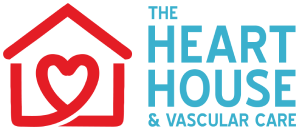Cardiopulmonary Stress Test
What is a Cardiopulmonary Stress Test?
A cardiopulmonary stress test monitors your heart rate, blood pressure, breathing, and electrocardiogram (ECG) while you engage in increasingly strenuous exercise. The test assesses how your cardiovascular and pulmonary systems respond to the demands of physical exertion.
You will walk on a treadmill or pedal a stationary bike starting at an easy pace. The speed and incline are slowly increased while sensors track your heart and lung function. This continues until you reach your target heart rate based on your age and health status.
Risks & Benefits of a Cardiopulmonary Stress Test
Cardiopulmonary stress testing is a diagnostic test that measures your heart's response to exercise. It is used to evaluate your heart function and diagnose heart conditions, such as coronary artery disease (CAD), arrhythmias, and heart failure.
Benefits of Cardiopulmonary Stress Tests
- Early detection
Cardiopulmonary stress tests can help to detect heart conditions that may not be apparent during rest. This early detection allows for timely intervention and treatment, which can prevent more serious complications later on. - Fitness assessment
Cardiopulmonary stress tests provide a comprehensive evaluation of your cardiovascular fitness level. This information is crucial for creating tailored exercise plans that can improve your overall health and well-being. - Treatment guidance
Cardiopulmonary stress tests help healthcare providers determine the effectiveness of medications and treatment plans. Adjustments can be made based on the test results, ensuring you receive the most appropriate care. - Heart health monitoring
For individuals with existing heart conditions, cardiopulmonary stress tests offer a way to monitor heart health over time. This allows for a proactive approach to managing heart-related concerns.
Risks of Cardiopulmonary Stress Tests
- Physical strain
As the test involves physical activity, there is a risk of straining the heart, especially for individuals with pre-existing heart conditions. However, the test is carefully supervised by medical professionals who can adjust the intensity to ensure safety. - Blood pressure changes
The increase in physical activity can lead to fluctuations in blood pressure. While this is typically temporary and monitored closely, it's important to be aware of this potential effect. - Discomfort or fatigue
Some individuals may experience discomfort or fatigue during the test due to physical exertion. However, the healthcare team is trained to address any discomfort and ensure your well-being. - Rare complications
While rare, there is a very small risk of experiencing complications such as fainting, dizziness, or irregular heart rhythms during the test.
What to Expect Before, During, and After a Cardiopulmonary Stress Test
Before undergoing a cardiopulmonary stress test, your cardiovascular specialist will guide you through the preparation process. You might be instructed to avoid heavy meals and caffeine a few hours before the test. It's important to wear comfortable clothing and appropriate footwear for exercise. Inform your cardiovascular team about any medications you're taking, as they might advise you to temporarily stop certain medications before the test.
The cardiopulmonary stress test is typically conducted in a controlled medical environment, such as a clinical office or a hospital. Electrodes will be placed on your chest to monitor your heart's electrical activity, and a blood pressure cuff will be placed on your arm. You'll then be asked to perform exercises on a treadmill or stationary bike. The intensity of the exercise will gradually increase, and the cardiovascular team will monitor your heart rate, blood pressure, and other vital signs throughout the process. You will continue exercising until you reach a point of exhaustion or until your cardiovascular specialist determines that enough data has been collected.
Once the exercise phase is completed, you'll be guided to a recovery area where your heart rate and blood pressure will continue to be monitored as they return to baseline. It's common to experience some fatigue and shortness of breath after the test, similar to the effects of moderate exercise. Here are some additional things to keep in mind:
- You must be well-hydrated before the test, as dehydration can affect the accuracy of the results.
- Your cardiovascular specialist will advise you on whether to take your regular medications on the day of the test.
- You can typically resume your regular activities unless advised otherwise by your cardiovascular specialist.
Am I a Candidate for a Cardiopulmonary Stress Test?
A cardiopulmonary stress test (CPS) is a diagnostic test that measures your heart's and lungs' response to exercise. It is used to evaluate your heart function and diagnose heart conditions, such as coronary artery disease (CAD), arrhythmias, and heart failure. Your healthcare provider will consider your medical history, current health status, symptoms, and any risk factors before recommending a cardiopulmonary stress test. Here are some factors that will help your doctor determine if you’re a candidate for this test:
- Symptoms
If you are experiencing symptoms such as chest pain (angina), shortness of breath, dizziness, fainting, or palpitations, you may be a candidate for a cardiopulmonary stress test. These symptoms could indicate underlying heart or lung issues that need to be evaluated. - Risk factors
Individuals with risk factors for heart disease, such as high blood pressure, high cholesterol, diabetes, or a family history of heart problems, may benefit from a cardiopulmonary stress test. This test can help identify early signs of heart disease and guide preventive measures. - Fitness evaluation
Athletes or individuals involved in sports might undergo a cardiopulmonary stress test to assess their cardiovascular fitness, endurance, and overall heart health. This evaluation can provide valuable insights for optimizing performance and preventing potential issues. - Monitoring chronic conditions
People with certain chronic conditions, such as heart failure, may undergo regular cardiopulmonary stress tests to monitor their condition's progression and adjust treatment plans accordingly. - Assessing treatment effectiveness
If you have had a heart procedure or treatment, a cardiopulmonary stress test can help assess how well your heart is responding to the treatment and guide any necessary adjustments. - Guiding exercise prescriptions
Cardiopulmonary stress tests can also help healthcare providers determine safe and effective exercise routines for individuals recovering from heart issues or surgeries.
Is a Cardiopulmonary Stress Test Right for You?
Photo Gallery
Video Gallery
Testimonials
Photo Gallery
Get To Know Our Cardiologists


 Fax: 856-547-5337
Fax: 856-547-5337
